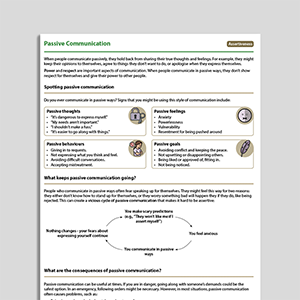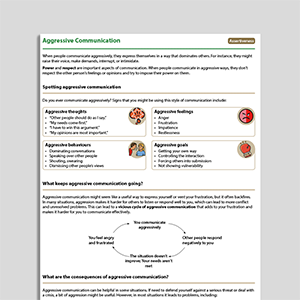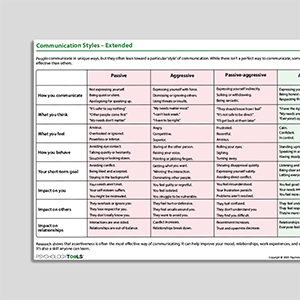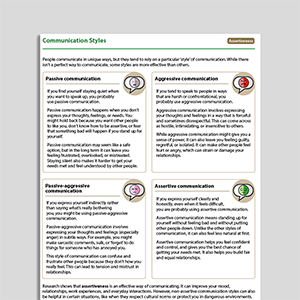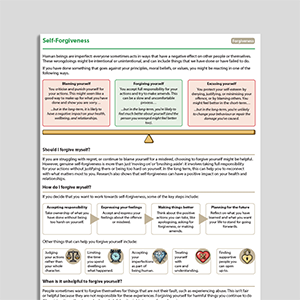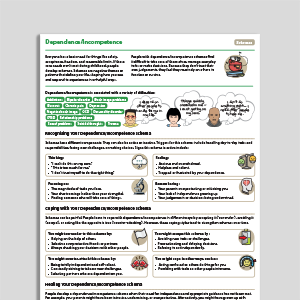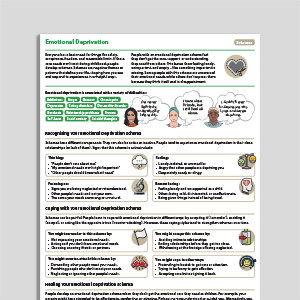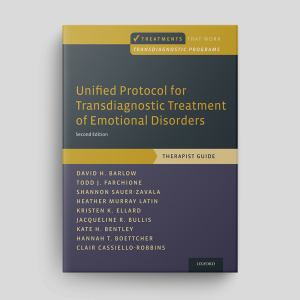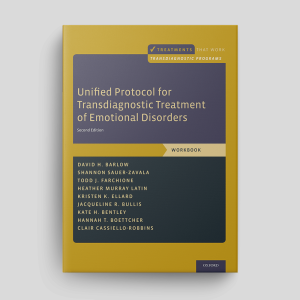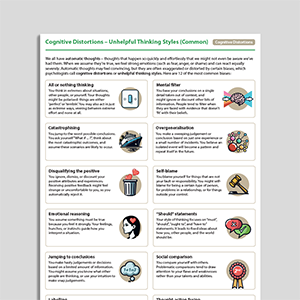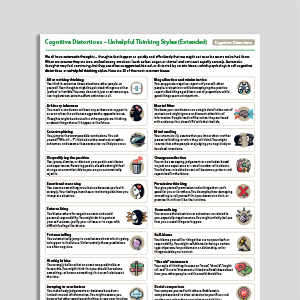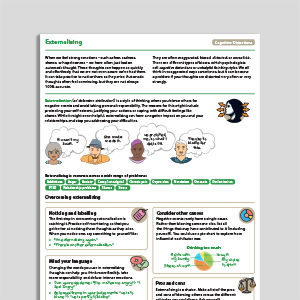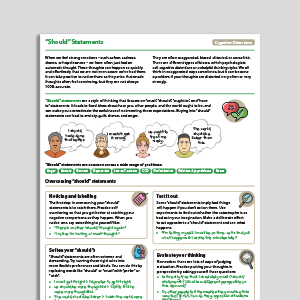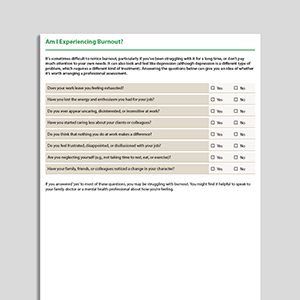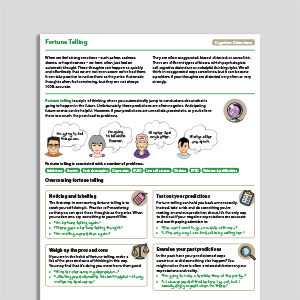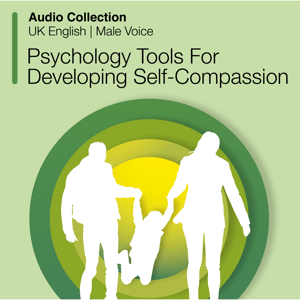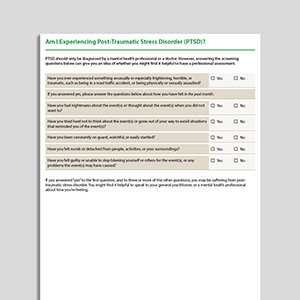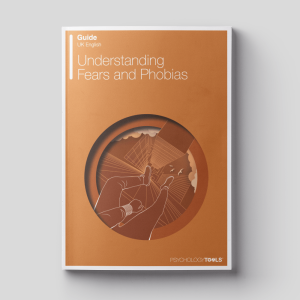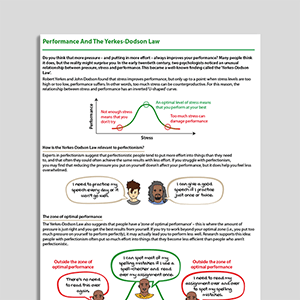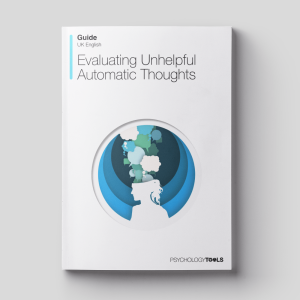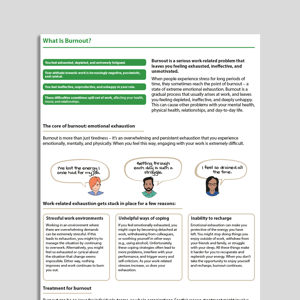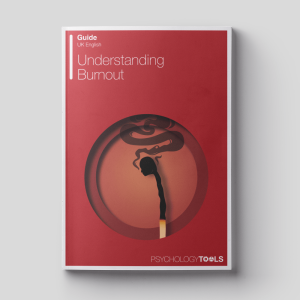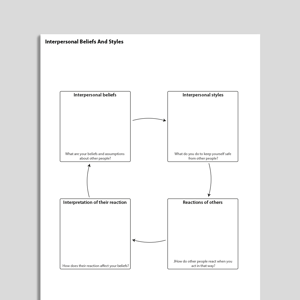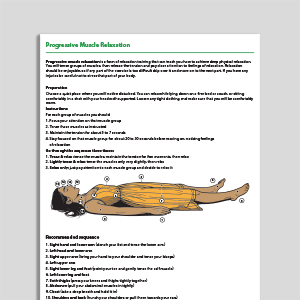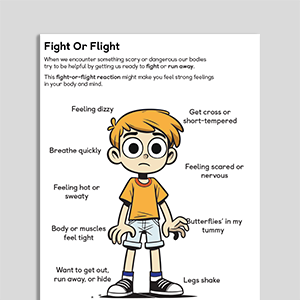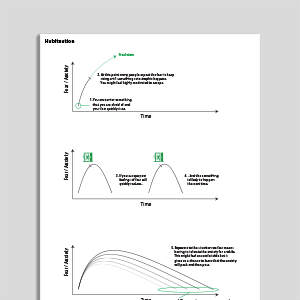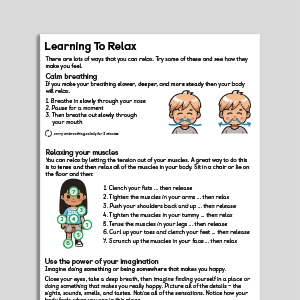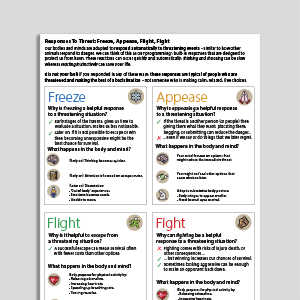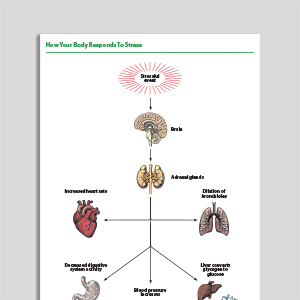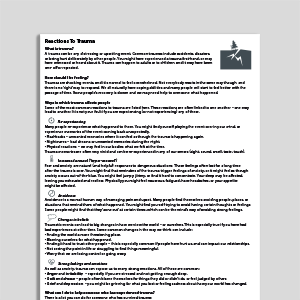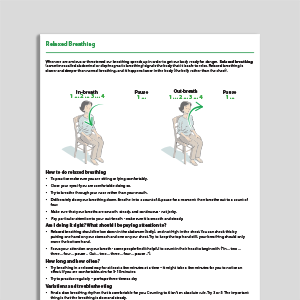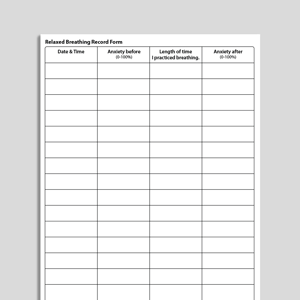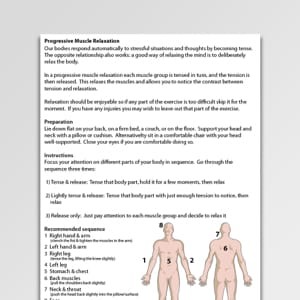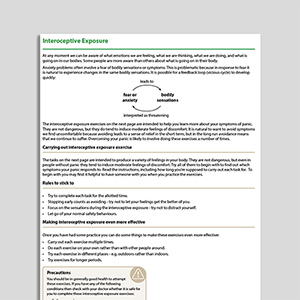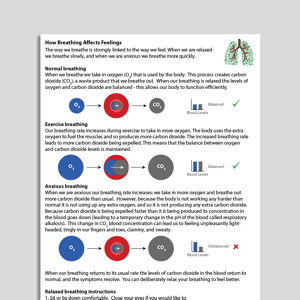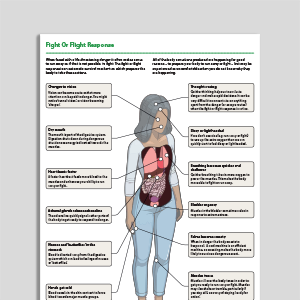Stress
Showing 1 to 36 of 36 results
Communication Styles – Extended
Dependence / Incompetence
Dependence / Incompetence
Unified Protocol for Transdiagnostic Treatment of Emotional Disorders (Second Edition): Therapist Guide
Unified Protocol for Transdiagnostic Treatment of Emotional Disorders (Second Edition): Therapist Guide
Unified Protocol for Transdiagnostic Treatment of Emotional Disorders (Second Edition): Client Workbook
Unified Protocol for Transdiagnostic Treatment of Emotional Disorders (Second Edition): Client Workbook
Cognitive Distortions – Unhelpful Thinking Styles (Common)
Cognitive Distortions – Unhelpful Thinking Styles (Common)
Cognitive Distortions – Unhelpful Thinking Styles (Extended)
Cognitive Distortions – Unhelpful Thinking Styles (Extended)
Audio Collection: Psychology Tools For Developing Self-Compassion
Audio Collection: Psychology Tools For Developing Self-Compassion
Am I Experiencing Post-Traumatic Stress Disorder (PTSD)?
Am I Experiencing Post-Traumatic Stress Disorder (PTSD)?
Understanding Fears And Phobias
Understanding Fears And Phobias
Performance And The Yerkes-Dodson Law
Performance And The Yerkes-Dodson Law
Evaluating Unhelpful Automatic Thoughts
Evaluating Unhelpful Automatic Thoughts
Interpersonal Beliefs And Styles
Interpersonal Beliefs And Styles
Responses To Threat: Freeze, Appease, Flight, Fight
Responses To Threat: Freeze, Appease, Flight, Fight
How Your Body Responds To Stress
How Your Body Responds To Stress
Progressive Muscle Relaxation (Archived)
Progressive Muscle Relaxation (Archived)
How Breathing Affects Feelings
How Breathing Affects Feelings
Links to external resources
Psychology Tools makes every effort to check external links and review their content. However, we are not responsible for the quality or content of external links and cannot guarantee that these links will work all of the time.
Guides and workbooks
- The Path to Patience: Six Practical Sections for Becoming a More Patient Person | Caroline Lavelock, Everett Worthington, Sarah Schnitker | 2013
- The Path to Positivity: Six Practical Sections for Becoming a More Positive Person | Caroline Lavelock, Everett Worthington | 2013
